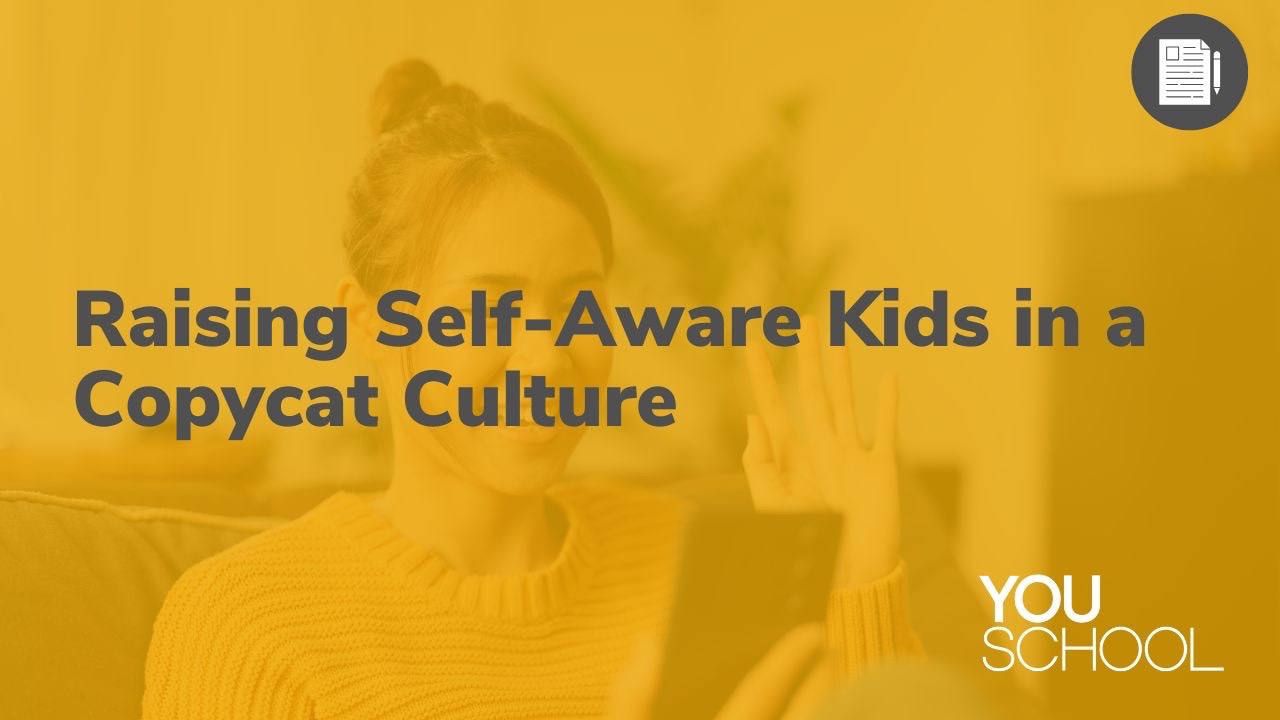Raising Self-Aware Kids in a Copycat Culture

A few months ago, I sat across from a high school junior during a check-in conversation. She was overwhelmed—stretched thin by AP classes, club leadership roles, sports, and the looming pressure of college applications.
When I asked, “What kind of person do you want to become?” she stared at me blankly. Not because she was being rude—but because no one had ever asked her that. She could rattle off her GPA, her resume, and even a list of “top colleges.” But she had never paused to think about the type of human being she wanted to be.
And that’s a problem.
The High Cost of Mimicking
Today’s kids are bombarded with messages about who they should be: high-achieving, effortlessly cool, constantly productive. Social media only adds fuel to the fire.
Psychologist René Girard called this mimetic desire—the idea that we learn what to want by watching others. In adolescence, when identity is still forming, this pull is especially strong. Your kid isn’t just copying a trend—they’re unconsciously copying goals, values, and even versions of success that don’t actually belong to them.
Without a clear inner compass, it’s easy to lose yourself trying to be what everyone else praises.
Autonomy = The Missing Ingredient
Here’s where the research really hits home. According to Self-Determination Theory (Deci & Ryan), three core needs drive healthy development:
-
Autonomy – feeling like you are in charge of your choices
-
Competence – feeling capable
-
Relatedness – feeling connected to others
Of these, autonomy is the most fragile—and the most vital. When a kid doesn’t know what kind of person they want to become, they fall into a cycle of performance, pressure, and comparison. They work hard, but they don’t feel like they’re living their life. And that disconnect leads to burnout, anxiety, and often, a sense of emptiness.
But here’s the good news: one question can begin to change that.
The Power of a Better Question
Asking your kid, “What kind of person do you want to become?” doesn’t demand a perfect answer. It just opens the door for reflection. It moves the conversation from grades and goals to values and vision.
It’s a reminder that who they are becoming matters more than any accolade or college acceptance.
How to Make It Real
Want to try this with your kid? Here’s how to make it stick:
-
Ask casually. In the car, over dinner, during a walk. No pressure.
-
Normalize not knowing. Say: “It’s okay if you’re not sure. I just want to hear what you’re thinking.”
-
Listen without fixing. Let them ramble, wonder, contradict themselves.
-
Reflect back what you hear. Help them name their values. “Sounds like you care about fairness.”
-
Model it yourself. Share who you’re trying to become. Even as an adult, you’re still learning.
A Future with Direction
Imagine your kid not just chasing a GPA or a sports title—but living with direction. Choosing friendships wisely. Navigating hard moments with integrity. Setting goals that actually reflect who they want to be.
That’s what happens when they can answer this one question.
So tonight, try it. Look them in the eye and ask, “What kind of person do you want to become?”
Then just listen. That’s where the real growth begins.
